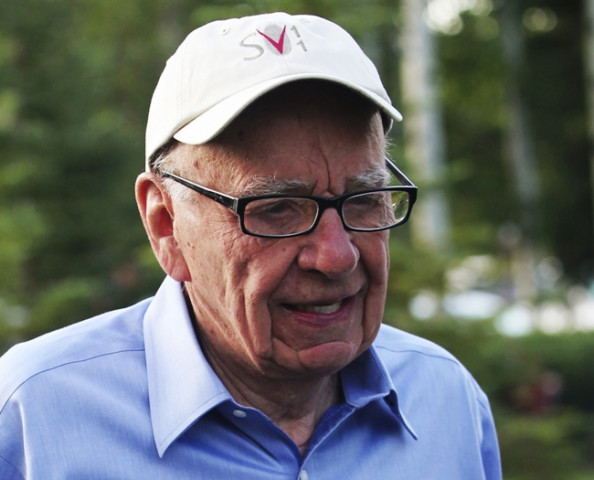Rupert Murdoch’s fate
Bringing Abbottabad raid, Memogate inquiry under television spotlight, as it was in Leveson Inquiry, may speed them.

For years, Murdoch was able to keep the bloodhounds at bay, thanks to the influence he had over the political elite. Now, however, politicians are turning against Murdoch in droves. This is partly due to the public nature of the Leveson Inquiry. Seeing the evasiveness of Murdoch on live television surely turned public opinion against him as did revelations of just how close he was to politicians of every stripe and ideology. Particularly damning was the testimony of Sir Harold Evans, who served as editor under Murdoch for a year after he took over The Times of London. Evans painted the portrait of a controlling, conniving liar who could not possibly have been unaware of the shenanigans taking place under his watch.
There are lessons to be learned here for Pakistan, too. We are currently in the midst of two vital inquiries: the ones looking into the Abbottabad raid and the memogate commission. Both these commissions are dealing with matters of national interest but, likely through lethargy, they seem to have made very little progress. Bringing them under the glare of television spotlights — as has been the case with the Leveson Inquiry — may speed up the process. It would also ensure that witnesses have even greater incentive to tell the truth, knowing that the public is watching. Even Murdoch’s influence has not been enough to save him; now we should give our own sacred cows the same treatment.
Published in The Express Tribune, May 19th, 2012.














COMMENTS
Comments are moderated and generally will be posted if they are on-topic and not abusive.
For more information, please see our Comments FAQ